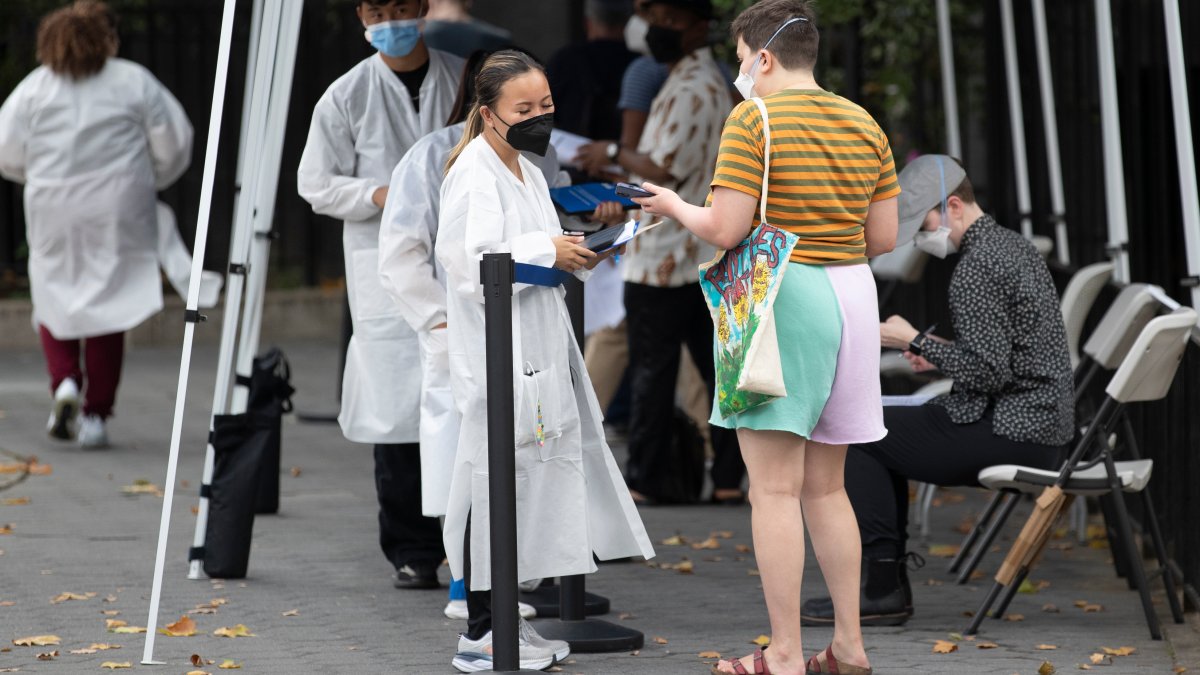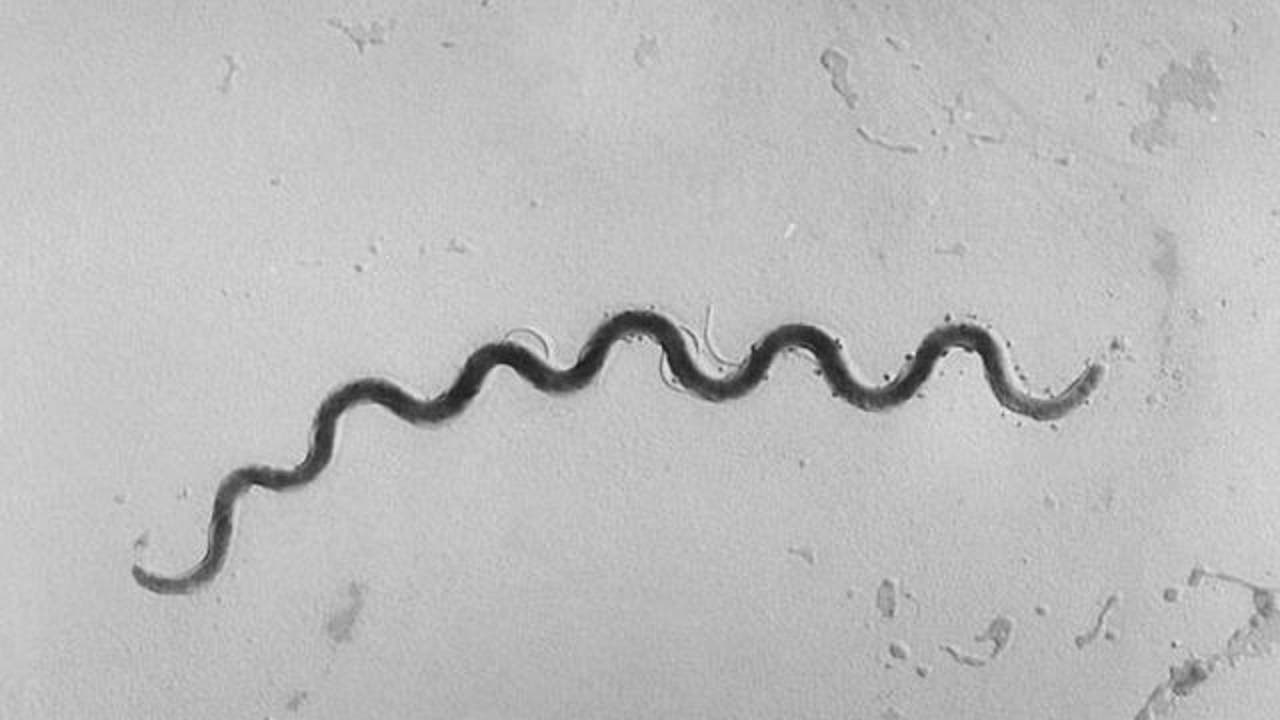As public health officials continue to urge people to take precautions with the monkeypox virus spreading quickly in the Chicago area, experts stressed that the virus is not strictly a sexually transmitted disease.
The virus, which is behind more than 570 infections in Illinois so far, can be spread through intimate contact, but it is not classified as an STD, according to Chicago Department of Public Health Commissioner Dr. Allison Arwady.
“So the number one way monkeypox in this outbreak is being transmitted is through sex or intimate contact. However, the virus itself, traditionally, is actually spread through contact with animals,” Arwady said. “The prior outbreak in Illinois… there were some imported animals from West Africa. Those animals were in contact with prairie dogs in Illinois and prairie dogs got infected and then we had about 50 or so individuals across the Midwest who had contact with prairie dogs get infected.”
Arwady said that while animal transmission was once the common source of spread, this outbreak is different in how quickly it is spreading between humans.
“That has not been the typical way and that’s why we’re having an outbreak,” she said. “And so it is about skin-to-skin contact.”
While sexual activities may be a primary source of spread so far, the virus can also be spread through kissing, some respiratory secretion and other means.
“Although the current outbreak is being transmitted primarily through sex, it’s about contact with bodily fluids, not just sexual fluids and it is transmitted through ways other than sex,” Arwady said. “So certainly our sexually transmitted infection clinics, including at the health department, are on high alert looking for this.”
Monkeypox cases in Chicago continued to rise, with the city’s health department announcing the current case count is well above 300.
The Chicago Department of Public Health said last week that the city’s current case numbers were at 326 as the city urged people to take added precautions to prevent spread of the virus, with little vaccine supply complicating immunization efforts.
Already, the outbreak has been declared a global emergency by the World Health Organization and a public health emergency in Illinois.
Gov. J.B. Pritzker on Monday declared monkeypox a public health emergency, classifying the state as a “disaster area” in regards to the disease.
According to the Centers for Disease Control and Prevention, Illinois is the state with the third-highest number of reported monkeypox infections reported, at 520. New York has the most reported cases, at over 1,300, followed by California, which has more than 800 reported cases.
Nationwide more than 5,100 infections have occurred.
“We have an outbreak that has spread around the world rapidly through new modes of transmission, about which we understand too little,” WHO Director-General Tedros Adhanom Ghebreyesus said. “I know this has not been an easy or straightforward process and that there are divergent views.”
To date, monkeypox deaths have only been reported in Africa, where a more dangerous version of the virus is spreading, mainly in Nigeria and Congo.
WHO’s top monkeypox expert, Dr. Rosamund Lewis, said last week that 99% of all the monkeypox cases beyond Africa were in men and that of those, 98% involved men who have sex with men. Experts suspect the monkeypox outbreaks in Europe and North America were spread via sex at two raves in Belgium and Spain.
Still, Dr. Amu Hazra, an infectious disease physician with Howard Brown Health, said that while a majority of cases have been in men who have sex with men, “the virus doesn’t care how you identify.”
Two children have been diagnosed with monkeypox in the U.S., health officials said Friday. In addition to the two pediatric cases, health officials said they were aware of at least eight women among the more than 2,800 U.S. cases reported so far.
“MPV is not a ‘gay disease’,” Arwady said. “There’s nothing inherent in the biology of the virus that limits it to men who have sex with men. The virus spreads through tight-knit social networks; it does not discriminate.”
Person-to-person transmission is possible through “close physical contact with monkeypox sores, items that have been contaminated with fluids or sores (clothing, bedding, etc.), or through respiratory droplets following prolonged face-to-face contact,” according to the Chicago Department of Public Health.
Arwady said most cases “are coming from much more intimate skin-to-skin contact or kissing” and noted that most casual contact and day-to-day activities – including things like shopping in crowded stores, going to a bar or coffee house, riding crowded CTA trains and buses, or using gym equipment or public restrooms – pose little to no risk for contracting MPV.
“Still, you should assess the risk factors of any activities. For instance, avoid sharing drinks or cigarettes or vape pens, and if you have sex with a new partner, take some time to talk about MPV, look for symptoms on your bodies, and if you have rashes, sores, or are feeling sick, don’t engage in any skin-to skin physical contact,” Arwady said. “And most importantly, if you start to exhibit symptoms, see a health provider and get tested right away. If you test positive, we can vaccinate your recent close contacts to help stop further spread of the virus.”
Monkeypox often begins with flu-like symptoms and swelling of the lymph nodes, and progresses to a rash on the face and body.
Virus symptoms range from fever, aches and rashes all over the body.
“Suspected cases may present with early flu-like symptoms and progress to lesions that may begin on one site on the body and spread to other parts,” CDPH previously stated.
Dr. Irfan Hafiz, an infectious disease specialist with Northwestern Medicine’s McHenry and Huntley hospitals, said the virus causes symptoms that are similar to several maladies, including chickenpox or smallpox.
“It can, to the layperson, look like chickenpox or warts,” he previously said. “But these (sores) tend to be in exposed areas.”
Health experts also stated the illness can be confused with a sexually transmitted infection like syphilis or herpes, or with varicella zoster virus.
Vaccine supply remains extremely limited in Chicago, health officials said.
“We’re doing everything we can to prioritize vaccinations for those most at risk, but the truth is, given the very limited national supply… there will be tens of thousands of individuals that are eligible and won’t gain access,” said Howard Brown Health CEO and President David Ernesto Munar.
Currently, you are eligible for the two-dose vaccine if you have had close physical contact with a confirmed case or if you’re a man who has had sex with another man and have done so in a social or sexual venue. Additionally, those who received money in exchange for sex or have had sex with anonymous partners are eligible.
CDPH noted that while delays are expected for some people who are eligible for their second doses, “the first dose provides the most substantial increase in antibodies that protect against the virus.”
The CDC has recommended the Jynneos vaccine for men who report more than four male sexual partners within the past 14 days.
As of last week, the U.S. had distributed more than 156,000 doses of the Jynneos vaccine to states and ramped up testing capacity. Many cities and states are offering vaccine doses to people with known or presumed exposure to the virus, including men who have sex with men and transgender, gender nonconforming or nonbinary residents with multiple sexual partners.
Chicago urged residents to take added precautions to curb spread.
“To lower the chance of getting MPV at places like clubs and festivals, where the general risk is very low, consider how much close, personal, skin-to-skin contact is likely to occur at the event you plan to attend. Avoid any rashes or sores you see on others and minimize skin-to-skin contact when possible,” CDPH said. “Settings where there is higher likelihood of spreading MPV include enclosed spaces such as backrooms, saunas or sex clubs, where there is minimal or no clothing and where intimate sexual contact occurs.”
Discovered on: 2022-08-04 13:00:58
Source: Experts Explain Why Monkeypox Is Not Being Called a Sexually Transmitted Di…



